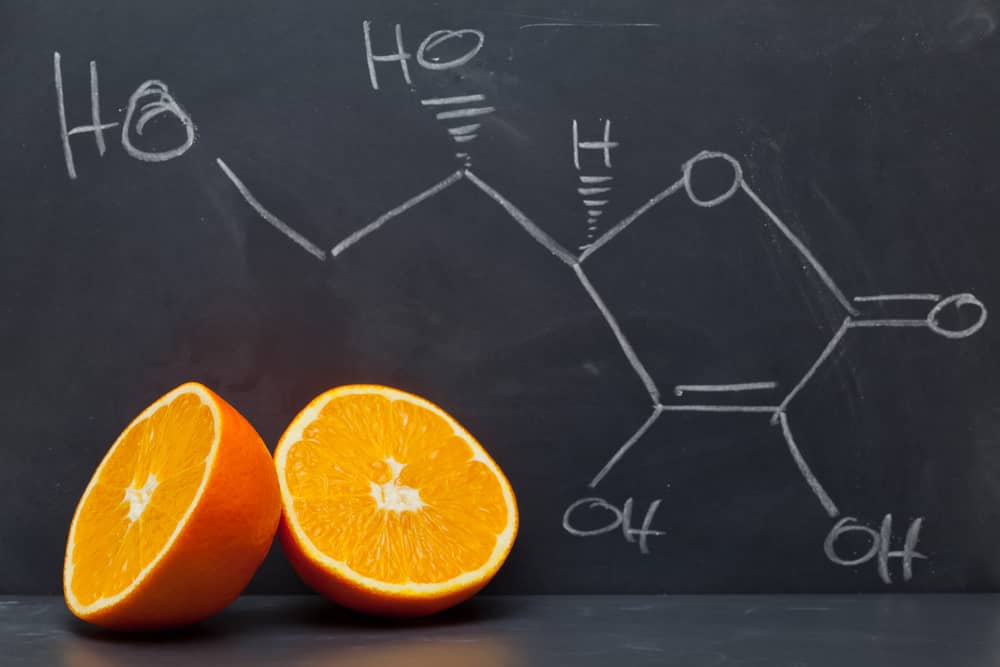




When most people hear about the carnivore diet, one of the most common concerns apart from the lack of fiber and elimination of plant-based antioxidants is that they won’t get Vitamin C.
This is a legitimate and understandable concern since Vitamin C is essential to your health, and its deficiency can lead to severe diseases. However, it’s not true that when you go on a carnivore diet, you won’t get any Vitamin C.
Vitamin C is a powerful nutrient commonly found in various plant foods such as veggies, fruits, and meat. This potent antioxidant helps protect the body from eye disease, immune deficiencies, prenatal health problems, skin wrinkling, and cardiovascular disease.
It’s a key factor in many enzymatic reactions on carnitine and collagen production. And when coupled with Vitamin E, it reduces lipid peroxidation, which helps prevent tissue damage and disease.
Vitamin C is responsible for collagen production, which is vital for building blood vessels and connective tissue. When your body doesn’t have enough Vitamin C, tissues in your body will start to break down. You’ll also notice minor symptoms such as lack of appetite, weight loss, and fatigue.
Your symptoms will worsen with time, including anemia, swelling or inflammation, bone pain, hair loss, breathing difficulty, gum disease, depression, ulcers, and even death. These are scurvy symptoms that explorers and sailors experienced in the 1800s.
While many animals can use glucose to synthesize Vitamin C, humans and other primates such as apes and monkeys lost this capacity during the evolution process. Lack of L-gluconolactone oxidase enzyme in our bodies hinders us from synthesizing Vitamin C out of glucose.
But our bodies have devised ways to cope with this by creating a system that takes out the oxidized form of Vitamin C and transporting it in antioxidant form. Unlike animals that make their own Vitamin C, humans need low amounts of Vitamin C.
Researchers also found that glucose and Vitamin C have nearly identical molecular structure and use the same pathways for absorption into the bloodstream. As such, they compete with each other for uptake and glucose wins preferentially. So basically, when you consume a high-sugar, high carb meal, your body absorbs the glucose over Vitamin C. That’s why drinking orange juice to increase Vitamin C is counterintuitive. It may contain a lot of Vitamin C, but you don’t get any of it because of the high sugar content.
Vitamin C is found in all meats, albeit in lower amounts than veggies. So how much Vitamin C do you need? People on a conventional American diet high in carbs and sugar typically need about 10mg per day of Vitamin C.
On average, grain-fed fresh beef contains 16mcg/g while grass-fed fresh beef contains 25 mcg/g of Vitamin C. While this may seem low, people on a carnivore diet require fewer amounts of Vitamin C than those on a high-carb, high-sugar diet. This is because of the low competing factor between Vitamin C and glucose, and since the carnivore diet contains very low sugar and zero carbs, the amounts of Vitamin C in meat will be adequate. Meat contains hydroxyproline and hydroxylysine, which the body uses to form collagen, making your body less dependent on Vitamin C.
It’s also important to note that meat has a higher bioavailability of Vitamin C. As a result, the body absorbs them much better than Vitamin C found in vegetables and fruits. Plants contain anti-nutrients that block Vitamin C absorption, so while plants contain a higher amount of raw Vitamin C, your body may not be able to access them.
If you’re worried about the antioxidant properties of Vitamin C, don’t be. Your body produces glutathione and uric acid, which are natural antioxidants. These substances are much more potent and take over many of Vitamin C’s roles in the body.
To increase your Vitamin C intake, you don’t have to resort to supplements. Including pork liver, chicken liver, cow liver, pancreas, and spleen in your carnivore diet will ensure you have enough Vitamin C. Remember Vitamin C is water-soluble, so drying out your meat or cooking it too much removes any Vitamin C that was present in the fresh cuts.
The carnivore diet has tons of benefits, and as we’ve shown, you can still get the required amounts of Vitamin C to stay healthy. Many people who’ve been on the carnivore diet and don’t supplement Vitamin C haven’t experienced any complications.
Paul is a nutrition freelance writer contributing to carnivore dieting topics, trends, and recipes. He expresses his prowess in creating insightful and educational pieces. His content is a product of deep research, wide reading, and clear understanding. When not on his desk, he spends his time hiking and camping with his wife, son, and dog.